More than winning the World Cup
The consequences of an economic defeat, however, will be far worse than simply losing a match.

The Indian premier’s invitation to his counterparts in Pakistan to witness the semi-final is an impressive attempt to enhance diplomatic ties. The proposition is not only magnanimous in its outlook, but also provides an extremely opportune time for India to make a global impression when it is vying for political and economic supremacy.
With so-called composite dialogue and trade talks resumed, India’s current gesture and the reaction of the two countries to the outcome of the match will go a long way in establishing a road map for reducing the trust deficit that hampers constructive progress on mutually beneficial issues like security and trade. The estimated welfare gains from bilateral economic and trade ties by far exceed the cost of a military build-up and mindless stand-off between the two countries.
Presently, our trade with India is through a ‘positive list’ approach as Pakistan does not allow India most-favoured nation (MFN) status, though opening up normal trade and bringing about effective tariff rationalisation will have definite meaningful gains for Pakistan. Apart from increased economic activity, the quantum of informal trade, guesstimated at $2 billion, can be reduced considerably. Following India’s current initiative to soften up diplomatic ties, Pakistan can respond by making headway on the MFN front during the upcoming bilateral trade talks. It is time to decouple trade from the more complicated political issues, showing remote chances of convergence.
For Pakistan, deteriorating law and order and economic instability pose a formidable challenge to its survival as an independent democratic state. With the world’s balance of economic power shifting towards emerging economies like China and India, hailed as the fastest growing economies of the future, Pakistan can reap the benefits of being strategically located between these two big world markets with over a billion people in both. Greater market access and deeper penetration of our products in these neighbouring markets will boost exports and make the domestic industry competitive by reducing transaction costs. Improved productivity will lead to economic growth, presently at an all-time low (below four per cent, compared to India and China at eight per cent and nine per cent respectively).
The current $2 billion bilateral trade between India and Pakistan is estimated to reach $10-11 billion as trade expands. In trade talks, Pakistan may show flexibility on MFN, while simultaneously pushing the Indian side to eliminate a plethora of hidden, non-tariff barriers (NTBs) that impede Pakistan’s exports. These include port restrictions, sanitary and technical standards, clearance delays, visa restrictions and tedious procedural requirements. The extent of gains the two countries extract from the trade talks will depend on their willingness to move forward on the subject and to keep trade issues out of the realm of political rhetoric.
As sincere Pakistanis, while we wish for our modern-day gladiators to win the World Cup to boost our national pride, let’s be mindful that a cricket win alone will not bring us economic gains and stability. We need to do more to provide affordable food and shelter, better employment opportunities and improved living standards to our people, including the marginalised 60 million below the poverty line. We need to invest more in education and health. We need easy and cheap access to clean water and energy. Need I say more!
Like a dropped catch, a missed opportunity in this direction will be the difference between winning and losing. The consequences of an economic defeat, however, will be far worse than simply losing a match.
Published in The Express Tribune, March 29th, 2011.


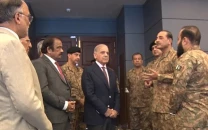
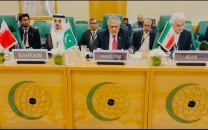

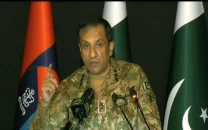
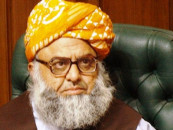



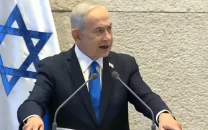







COMMENTS
Comments are moderated and generally will be posted if they are on-topic and not abusive.
For more information, please see our Comments FAQ